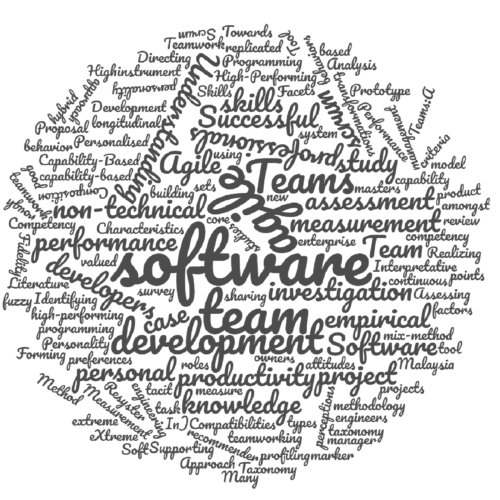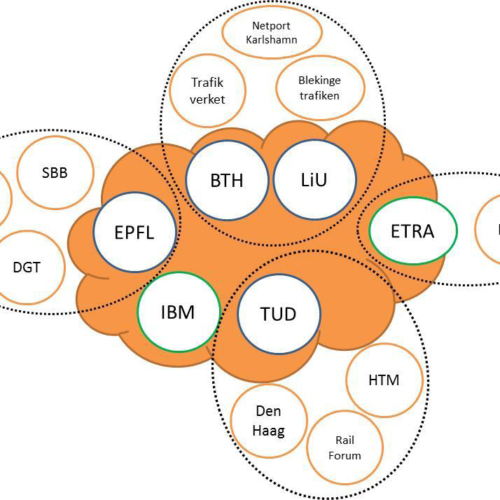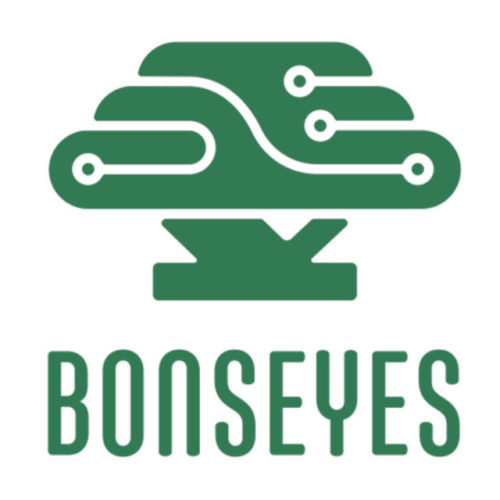Computer science
Computer science
Computer science is a very broad area of research that includes several different disciplines and subjects. At BTH, we have chosen to focus on the following areas:
Big data and AI
The researchers are studying different techniques for handling large amounts of data from a technical perspective with regard to, for example, storage and database systems as well as how AI, machine learning and information mining can be used for pattern recognition and trends in large amounts of data.
Parallel computer systems
The research focuses on parallel computer systems, cloud-based systems and security. The research covers both practical and theoretical aspects of data processing with applications and implementations of different systems.
Visual and interactive computer science
The research in visual and interactive computer science has a focus on, for example, computer graphics, visualisation, game technology, mobile digital media and human-centered computing. In computer graphics and visualisation, the researchers focus on modeling, animation, rendering, extended reality (AR/VR/MR), image processing and appropriate visualization and communication of 2D and 3D data.
Within digital game development, we focus on game development and specific game technology, with new interaction techniques (biofeedback), game analysis, “serious games”, gamification, and games for entertainment. Finally, in human–computer systems methods and techniques, researchers study human–computer interaction, interaction design, user studies, and eye control and eye tracking techniques. Within the field, we also study quality assessment, processing and computing of mobile digital media.
Security and distributed systems
This area considers the architectures, designs and technologies for the secure and efficient operation of next-generation software-based and cloud-based networks and systems (incl. SDN, NFV, 5G/B5G, SmartGrids, IoT, etc.). It addresses the systemic cybersecurity of data-centric, collaborative clouds and infrastructures. In addition, the field examines specific topics on security and data privacy in digital societies and for the secure trading of digital goods.
Big data
BigData@bth – Scalable resource-efficient systems for big data analytics
Data will be generated at an ever-increasing rate for the foreseeable future. Added value and cost savings can be obtained by analyzing big data streams. The analysis of large data sets requires scalable and high-performance computer systems. In order to stay competitive and to reduce consumption of energy and other resources, the next generation systems for scalable big data analytics need to be more resource-efficient. The research profile, Scalable resource-efficient systems for big data analytics, combines existing expertise in machine learning, data mining, and computer engineering to create new knowledge in the area of scalable resource-efficient systems for big data analytics. The value of the new knowledge will be demonstrated and evaluated in two application areas (decision support systems and image processing).
The needs and interests of our 9 industrial partners are grouped into industrial challenges. Based on these challenges and in cooperation with our partners we have defined initial sub-projects grouped into four research themes:
- Research theme A: Big data analytics for decision support
- Research theme B: Big data analytics for image processing
- Research theme C: Core technologies (machine learning)
- Research theme D: Foundations and enabling technologies
Funding: The Knowledge Foundation (KK-stiftelsen) 2014-2020
Partners: Arkiv Digital AD, Compuverde, Contribe, Ericsson, Indigo IPEX, Noda Intelligent Systems, Telenor Sverige, Sony Mobile Communications, and Maingate Enterprise Solutions
Contact person: Håkan Grahn, hakan.grahn@bth.se
CLOUDTEST
CLOUDTEST is a research project on the use of cloud technologies to reduce costs and energy consumption associated with the testing of large telecommunication systems. Today, hundreds of test servers, including at Ericsson, are used to test telecommunications systems. These servers are expensive to purchase and maintain, and consume a lot of energy. The goal of the project is to develop techniques and methods to enable the development of a “cloud” of virtual test servers. The idea is for multiple virtual test servers to share the same physical server and that the test cloud can be used by developers in different places all over the world. This technology will reduce both costs and energy consumption. The project is partly financed by the Swedish Knowledge Foundation (KKS).
BTH is working together with Ericsson Karlskrona and ILT Innovations AB on this CLOUDTEST project, funded by KKS.
Contact person: Lars Lundberg
Research environment
BigData@bth
Scalable resource-efficient systems for big data analytics ![]()
Data will be generated at an ever-increasing rate for the foreseeable future. Added value and cost savings can be obtained by analyzing big data streams. The analysis of large data sets requires scalable and high-performance computer systems. In order to stay competitive and to reduce consumption of energy and other resources, the next generation systems for scalable big data analytics need to be more resource-efficient. The research profile, Scalable resource-efficient systems for big data analytics, combines existing expertise in machine learning, data mining, and computer engineering to create new knowledge in the area of scalable resource-efficient systems for big data analytics. The value of the new knowledge will be demonstrated and evaluated in two application areas (decision support systems and image processing).
The needs and interests of our 9 industrial partners are grouped into industrial challenges. Based on these challenges and in cooperation with our partners we have defined initial sub-projects grouped into four research themes:
- Research theme A: Big data analytics for decision support
- Research theme B: Big data analytics for image processing
- Research theme C: Core technologies (machine learning)
- Research theme D: Foundations and enabling technologies
Funding: The Knowledge Foundation (KK-stiftelsen) 2014-2020
Partners: Arkiv Digital AD, Compuverde, Ericsson, Noda Intelligent Systems, Telenor Sverige, and Sony Mobile Communications.
Contact person: Håkan Grahn, hakan.grahn@bth.se
Contact
 Associate professor Veronica Sundstedt
Associate professor Veronica Sundstedt
Head of subject, computer science
E-mail: veronica.sundstedt@bth.se
Telephone: + 455-38 58 50












